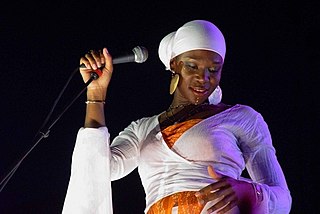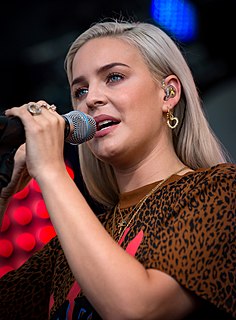A Quote by Richard Attenborough
If I were able to write, I probably would. But movies have given me a part of my life where I can express feelings and bring convictions to an audience as if I could write. So I made 'Gandhi' about human relations, prejudice and the empire. In 'Cry Freedom' I expressed my horror and disgust about apartheid.
Related Quotes
One of the things I always underscore when I teach criticism is that young critics, or would be critics, frequently have this illusion that if they write about music they're somehow part of music, or if they write about movies they're part of movies, or of they write about theater they're part of theater, or write about literature. Writing is a part of literature, we belong the species of literature. If you add all the music reviews together that have ever been written, they don't create two notes of music.
I thought I could capture the stories of the city on paper. I thought I could write about the horrors of the city. Horror stories you see. I tell you I didn't have to look far for material. Everywhere I looked, there were stories hidden there in the dark corners. . . . I wrote and still there were more. . . . No one would publish them. 'Too horrible,' they said. 'Sick mind,' they said. I thought I could write about the horrors of the city but the horror is too big and it goes on forever.
People just didn't write songs that were so directly emotional in those days. They still don't. Part of Hank's [Williams] thing was that he was opening up about relationships between men and women in ways that nobody else did, and I think that's something that made him stand out so much. His songs are just so straightforward about these really deep feelings that are universal, but they're so hard to write about without sounding sappy or over the top. You think of men in that era - they didn't express themselves that way.
I found it was my good fortune to somehow be able to work in these forms that I loved when I was a kid. I love movies and I could write screenplays. I love theater and I could write plays. I mean, they would be my own, I could never write what was used to be called the well-made play. But my first play, "Little Murders," turned out to be a great success and a great influence on plays at that time.
When I see an entire community disenfranchised, it disturbs me. Not that I'm a message guy, per se. I write about people. I like to write about human beings, not crap political rhetoric. I've tried to avoid that all my life. When I wrote about soldiers in Vietnam, I wasn't trying to make a political statement. I was trying to write about how screwed things were for soldiers, and how they still are.
I wanted to write and then I saw Pierrot and I understand that I could express myself in a more... Also probably, I had an intuition that if I was going to only write, I will stay in one room all the time and never go out. I felt that if I was going to make movies, I would have to communicate with people and it would be good for me.
I don't write about sex because it's not really my subject. I love it when other people write about it, but it's not my subject, and I don't want anyone I've had sex with to write about it. Plus, you're in front of an audience, and they picture wherever you're writing about. I'm 52; no one in the audience wants to picture that.
We [ with Brian Mulroney and Rajiv Gandhi] went to the meeting in Canada [the 1987 Vancouver CHOGM] and I said to them there that sanctions weren't working; they were just being busted. And it did seem to me that one way that we could bring the apartheid regime down would be if we did mount an effective investment sanction.
That afternoon he told me that the difference between human beings and animals was that human beings were able to dream while awake. He said the purpose of books was to permit us to exercise that faculty. Art, he said, was a controlled madness… He said books weren't made of themes, which you could write essays about, but of images that inserted themselves into your brain and replaced what you were seeing with your eyes.




































